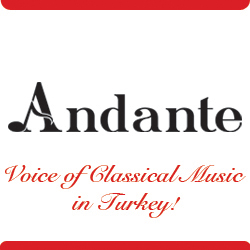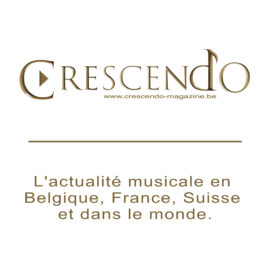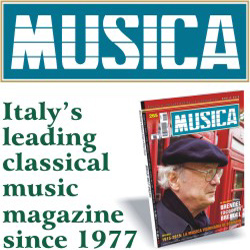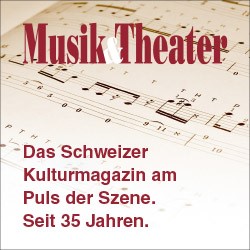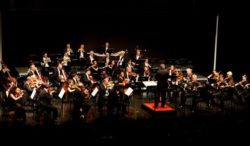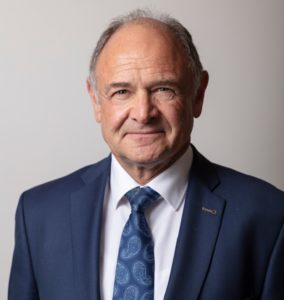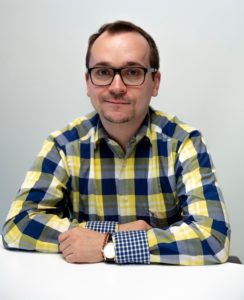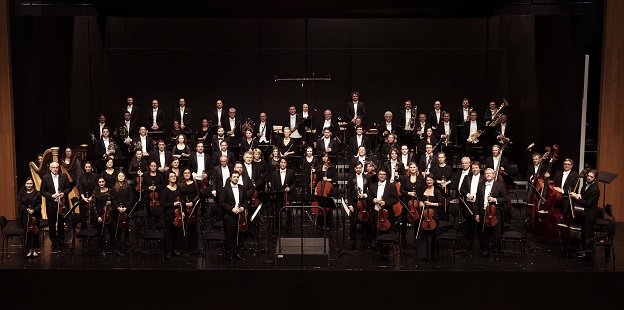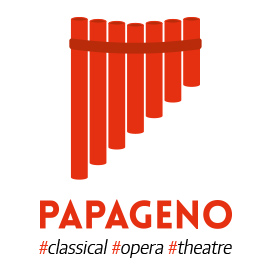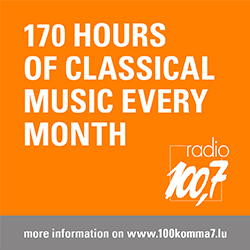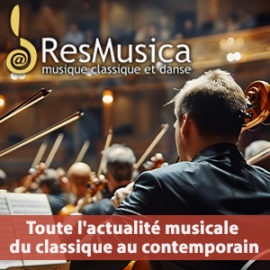The Sinfonieorchester Liechtenstein (SOL) is hosting this year’s International Classical Music Awards Gala on 27 June in Vaduz. In an interview with René Brinkmann, the president of the orchestra’s foundation board, Dr. Ernst Walch, and the head of the SOL’s artistic operations office, Florian Thierbach, talk about the past, present and future of the orchestra, which has been appearing more and more frequently on the « classical music map » in recent times.
When you look at the history of the Sinfonieorchester Liechtenstein, the first thing that strikes you is that the orchestra, with its founding date in the 1980s, is quite a young orchestra compared to the orchestras in the surrounding countries of Switzerland, Austria and Germany. Could you perhaps first give our readers a brief summary of the orchestral tradition in Liechtenstein: Was there no professional symphony orchestra in Liechtenstein at all before the foundation of the Sinfonieorchester Liechtenstein?
EW: That’s right, the Liechtenstein Chamber Orchestra was founded on 10 September 1988 with the pragmatic aim of providing the music teachers of the Liechtenstein Music School with their own orchestra. Otherwise, the Vereinskultur has always been very strong in this country, so that in a broader sense there are many ensembles, but until 1988 there was no professional (national) orchestra.
In the meantime, it was given the name Sinfonieorchester Liechtenstein – SOL for short – and underwent a major transformation in 2012. Professional structures, such as the legal restructuring from an association into a non-profit foundation, thus the introduction of a foundation council, a circle of friends, an orchestra board, a professional management and other bodies and administrative instruments, ensured a significant increase in the quality.
Thus, to this day, the Sinfonieorchester Liechtenstein prevails as the only professional orchestra in the Principality. Of course, there was also a desire in the amateur sector to make orchestral playing possible, so that in addition to the SOL there is the Liechtenstein-Werdenberg Orchestra (OLW), which is, however, a melting pot of ambitious amateurs and selected professional musicians.
Since its restructuring in 2012 – mainly shaped by its artistic director and managing director Drazen Domjanic – the SOL has felt obliged to put together an ensemble that increasingly measures itself with the well-known, renowned orchestral greats. At the same time, it is of great concern to the SOL to support young soloists from near and far. Many of these rising stars are already established on the international stage. It is all the more pleasing for us when they find their way back to Liechtenstein to the SOL, where we have been able to support and develop some of them.
And then there is also a meanwhile most renowned chamber Orchester based in Liechtenstein, Esperanza, which was founded by Drazen Domjanic at the International Music Academy of Liechtenstein, an ensemble which won already an ICMA Award.
The best-known Liechtenstein composer is Josef Gabriel Rheinberger, who was very renowned in the 19th century and played an important role especially as a pedagogue. His work is now being gradually rediscovered, and after all that one gets to hear, it is very rightly so. But are there other Liechtenstein composers of whom you think: they are actually neglected, they should be heard more often?
EW: Josef Gabriel Ritter von Rheinberger, even ennobled throughout his life, certainly describes the beginning of a composer era from Liechtenstein that has no need to hide. Other great composers one might think of first, such as Ludwig van Beethoven or Wolfgang Amadeus Mozart, also had a special relationship with Liechtenstein and its Princely House. The genius Mozart dedicated a cantata to the then Prince Alois I of Liechtenstein, which was only recently discovered through musicological research. Also Beethoven dedicated his 13th piano sonata to Princess Josephine of Liechtenstein. The American composer and arranger Samuel Adler reworked Ludwig van Beethoven’s famous ‘God Save The King’ Variations, originally composed for solo piano, for large symphony orchestra especially for the SOL.
Back to the question, we must not neglect today’s Liechtenstein composers, such as Jürg Hanselmann, Marco Schädler and Stefan Frommelt. This year we are even performing a work for orchestra by the latter, together with his jazz trio, on 21st September in Schaan. Due to our not insignificant intensification in terms of livestreaming, you will also be able to follow this concert – the so-called and annual Freundeskreis concert – from anywhere via the recently launched portal www.kulmag.live. Therefore, you will soon be able to get an idea of the latest compositions from Liechtenstein yourself.
Since this year, the Sinfonieorchester Liechtenstein has also been active with international concerts for the first time in its history (if I am informed correctly), and gave a guest performance in May at the Tonhalle Maag in Switzerland. The next concert is planned for the Berlin Philharmonie and will thus present the SOL in a particularly prestigious location. What is your primary goal with these foreign concerts?
FT: The SOL had to take a longer intermezzo at its concerts abroad for a few seasons, in order to be able to leave the homeland all the more strengthened now. Before that, we went to the theatre in Chur, to the Next Generation Festival in Bad Ragaz, to the Hochschule für Musik und Theater in Munich on the occasion of the 175th birthday of Josef Rheinberger, who taught organ and composition at the same institution, to the Festspielhaus Bregenz, to Vienna, to Shanghai at the EXPO in 2010 and even to the Beethovenhalle in Bonn.
After almost five years without concerts abroad, thanks to an extremely generous sponsor who does not wish to be named, we have now been given the opportunity to organise one concert abroad per season. We are primarily concerned with the external presentation of Liechtenstein, which we as cultural ambassadors, so to speak by definition, have and are allowed to share responsibility for! In May of this year, we were able to make a first start here, even if only in front of 50 people in the audience, in the Tonhalle Maag, however, with the x-fold livestream audience and a sign of life after months of audience blockage. The subsequent positive reactions from the critics confirmed our intention to continue to carry the name of Liechtenstein to the outside world. Therefore, for our next guest performance in the Great Hall of the Berlin Philharmonie on Wednesday, 23 November 2022, we have been able to unite two audience magnets that can only be found in the most prestigious concert halls. Traditionally, we present our season, which is always calendared, in November – so you’ll have to be a little patient before we present our new season. But this much can be said – after times of distance and minimum intervals, the motto of our 34th season in 2022 is: Zemma – Together in English.
In the course of the Corona pandemic, there was the problem also in Liechtenstein that concerts could not take place in front of an audience in the hall. But the SOL apparently made a virtue out of necessity and started to broadcast the SOL concerts live on the internet. How did the idea come about?
FT: To be honest, we were extremely privileged in Liechtenstein that we were allowed to play in front of a full audience from September to mid-December last year; of course, in compliance with strict protection concepts, which, however, have proven themselves successful so far. Nevertheless, we saw in our two neighbouring countries the forerunners of all those restrictions which we finally had to accept in mid-December. Therefore, we started already in November with hybrid concert forms, where our 1000 subscribers could decide for themselves whether they wanted to be there live or tune in from home with different camera positions, a superimposed programme and an almost concert-like atmosphere. We benefited from the fact that we had been recording all of our concerts since 2012 and that from project to project we showed the will to constantly improve and become more professional. It also became apparent as early as November that a not insignificant proportion of our subscribers might also be satisfied with high-quality livestreaming. In the course of our efforts towards internationalisation and our ambassadorial function for Liechtenstein, livestreaming offers an unimaginably great opportunity to carry the branding « Sinfonieorchester Liechtenstein » out into the world. Therefore, we remain true to both the analogue and also the digital track and intend to continue to serve both our subscriber base, which by now feels like a family, and a livestream community.
Are the streaming concerts well received? Approximately how many viewers tune in per concert?
FT: Better than expected, because especially in winter this year we were all culturally thirsty and longed for good music which was professionally, interestingly and excitingly recorded and conveyed to the livestream viewers. In addition, we offered our SOL musicians an attractive package for all subscription Symphony Concerts SOL in the SAL, which they in turn bought for their families and relatives far away, whom it was impossible to visit. This campaign and our strong efforts in the media and especially social media channels were a super-spreader in a positive sense. We quickly came to the attention of the media and agencies, and since then we have been able to talk about increasing numbers – but in this case this is also positive.
Do you think that you can also gain an international audience through the streaming concerts? After all, you have entered into a cooperation with the German streaming provider takt1, which means that the concerts from Liechtenstein will soon be included in takt1’s program, and then one can assume that you want to address international audiences on a larger scale. Is that fair to say?
FT: Right, we as SOL are of the opinion that we are only strong together – especially in times of crisis. Therefore, the step to enter into a cooperation with takt1 was the logical next step for us. The company behind the Sinfonieorchester Liechtenstein, which is not afraid of work, KULMAG Kulturmanagement AG, does not call itself in its subtitle « Your partner for classical music in and from Liechtenstein » without reason, because the aim is to show the outside world what is on offer culturally in the Principality of Liechtenstein.
One of the concerts that will certainly receive a lot of international attention is the gala concert of the International Classical Music Award (ICMA) on 27th June. How did it come about that the ICMA Gala is being hosted in Vaduz?
EW: For many years now, there has been a very close, friendly, collegial and quality-oriented cooperation between the ICMA – in the person of its President Remy Franck – and Liechtenstein; to be precise, the talent factory from the municipality of Eschen-Nendeln in the Principality, the International Music Academy in Liechtenstein. Furthermore, Liechtenstein imposed itself in a positive sense when its recently renamed ensemble Esperanza Vaduz accepted the Special Achievement Award at the Leipzig Gewandhaus in 2017. The pressure on the ICMA was perhaps increased by the fact that at some point it could also be Liechtenstein’s turn to host the ICMA. So in February 2018, the target-oriented talks in Vaduz finally took place, so that this year the capital city of Vaduz could follow in the footsteps of Leipzig, Katowice, Lucerne, Seville (unfortunately cancelled due to Corona) and many other beacons of Europe.
What does the hosting of the ICMA mean for the SOL?
EW: The SOL is virtually inspired by this honour. One must bear in mind that the ICMA have advanced to become the Olympic Games of the classical music scene, and we as the SOL are being passed the musical torch, among others from the Leipzig Gewandhaus Orchestra to the Lucerne Symphony Orchestra and now across the Rhine to Vaduz to the SOL. It’s an indescribable honour. On this evening, the SOL also has the chance to play itself to the fore under the overall musical direction of Yaron Traub and other excellent conductors, even though we are primarily allowed to accompany important soloists, but this also brings with it an enormous opportunity. Furthermore, Vaduz can convince with its compactness, versatility and openness. I hope that you can hear it in our voice: we are full of irrepressible anticipation to be allowed to host.
The concert on 24th June, the Vaduz World Classical Concert, also has an international theme. What exactly is it about? Or to put it another way: What is it, a World Classical Concert?
FT: The Vaduz World Classics concert series has already welcomed all the big names in the classical music scene to Vaduz. Behind this is the Theater am Kirchplatz – TAK for short – which for many years has invited us to a concert every year during its season as the national orchestra. This year’s invitation on 24th June combines both internationality and a return to the roots. With the cellist Kian Soltani, a now world-renowned artist returns to the region that shaped him musically for many years. In addition, our soloist, who grew up in Vorarlberg, is returning to his homeland for a few days, and we as SOL will have the pleasure of being on stage with him again. However, Maestro Kevin John Edusei, who is with us for the first time on the podium, will keep the musical overview and provide fresh musical input. With his experience as chief conductor in Munich and Bern, he is sure to set a new tone in the SOL.
For some time now, the SOL has been playing without a permanent principal conductor. How did this very interesting concept come about and how is the orchestra adjusting to it?
EW: With Florian Krumpöck as principal conductor from 2013 to 2015 and Stefan Sanderling in the same position from 2016 to 2018, the foundations have been laid since the necessary restructuring in 2012; two pillars on which to build. The SOL needed this foundation and therefore we are extremely grateful for these two three-year periods together with the chief conductor. With the launch of our Vaduz Classic festival in August 2017, which saw guest conductors on the podium of the SOL for the first time in several seasons, we noticed from the reactions in the orchestra how beneficial the new breath of fresh air was in each case.
Since we as a national orchestra can only have a manageable number of projects due to an almost complete lack of subsidies, it was practically impossible for a chief conductor to build up a real sense of responsibility if one can ultimately only conduct five or six projects per season. In addition, the positive, motivating vibes from the guest conductors prompted us to take on a new, courageous path; the one without a chief conductor. Since then, we have been following this course of inviting guest conductors every year or every two years on the one hand and completely new maestros on the other. A good example of this is the two concerts in June – with a debut by Kevin John Edusei and the always welcome guest conductor Yaron Traub.
But the fact that we work without a principal conductor is only part of our concept, which could be put into practice thanks to another generous support, namely that of the HILTI Family Foundation. Rather, in addition to changing guest conductors, we believe that changing guest voice leaders can also build our SOL from the inside out. Concertmaster luminaries such as Rainer Honeck of the Vienna Philharmonic and Sreten Krstic, who performed in the same capacity with the Munich Philharmonic for almost 40 years, have already accepted our invitation. Renowned principals in viola, violoncello, horn, bassoon and others also found their way to the SOL and motivated us with their many years of orchestral experience alone. With such personalities, the entire orchestra sits on the edge of its chair by itself at the first rehearsal.
What are the SOL’s plans for the near and distant future? What is the orchestra’s concept for concert life after the Corona pandemic?
EW: The goal for us in the SOL is that in five or ten years’ time we will be able to claim that all of the greatest classical artists of our time have performed in Liechtenstein, and that one day it will be commonplace to read in artists’ biographies: « The artist has already performed in New York, Tokyo, Berlin, Vienna and the Principality of Liechtenstein. »
I think it will be our task to find out from our audience whether we can continue to welcome them in the concert hall or whether we have also been able to convince them with our livestreaming events, because after Corona we definitely don’t want to play in front of half-full halls, as is currently still the case due to the political measures.
Finally, we see ourselves as a national orchestra which, as ambassadors of our wonderful country, represents and carries out the name of Liechtenstein in connection with quality, openness and internationality through outstanding classical music.


